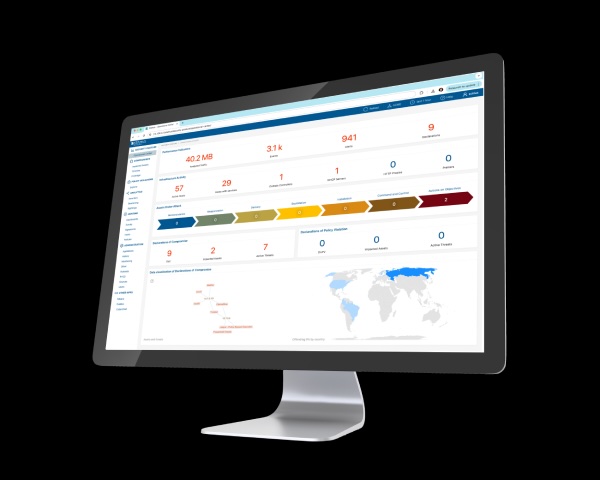In an era where digital literacy is becoming as essential as traditional subjects, Ambion X stands at the forefront of educational innovation. What started as a simple YouTube channel offering bite-sized tutorials for teachers has evolved into a transformative initiative spanning 22 primary schools in the Netherlands. By integrating iPads and MacBooks into classrooms, developing hands-on training for educators, and pioneering a structured digital literacy curriculum, Ambion X is redefining the way students and teachers engage with technology.
In this interview, we explore the origins of Ambion X, its mission to enhance digital education and the challenges and breakthroughs in implementing tech-driven learning. From the groundbreaking Diginaut program to innovative teaching methodologies, Ambion X is shaping the future of education—one digital skill at a time.
What is the mission behind Ambion X, and how does it support educational innovation?
Ambion X is a platform from which we deliver programs, products, and services for our 22 primary schools. Our projects focus on providing engaging and innovative education through technology, with the goal of improving digital literacy among both students and teachers.
How did Ambion X originate, and what was the driving force behind its creation?
Ambion X began as a YouTube channel featuring short instructional videos for teachers using iPads in their classrooms. It all started after Sijbrand and I attended a seminar on educational transformation. One of the key takeaways was that meaningful change starts with small steps. We had already realised that long instructional manuals were barely read and failed to inspire teachers. So, we took a different approach—starting small.
Each month, we created a short, light-hearted video that demonstrated a single task on the iPad. These videos quickly gained traction and were viewed hundreds of times by teachers. Eventually, we also launched a kids’ channel, which proved especially useful during remote learning periods.
As interest grew, we expanded from videos to include classroom workshops and school team training sessions, which we bundled under the name Ambion Talent. In a short period, we conducted nearly 400 sessions—ranging from graphic design and vision development to programming and impactful presentation skills.
What are the key benefits and challenges of integrating digital tools like iPads and MacBooks into daily learning?
We deliberately chose iPads and MacBooks because of their reliability and the seamless integration between hardware and software. Collaboration and creativity are inherently supported through pre-installed apps like Keynote, Pages, iMovie, and more—all of which are freely available to students and teachers.
The mobility of these devices encourages learning beyond the classroom. Apple technology is also incredibly intuitive, allowing users to get started quickly. However, since many people aren’t initially familiar with Apple’s ecosystem, the transition was carefully structured and supported by extensive professional development.
We also redesigned our classrooms to match the new approach—replacing touchscreens with TVs connected to Apple TVs, equipping every student (starting from grade 3) and every teacher with an iPad, and placing a Mac on every teacher’s desk for administrative tasks. While the transition had its challenges, we had a strong internal support team to manage deployment, training, and troubleshooting, which made the rollout smooth and effective.
How does Ambion X contribute to improving digital literacy among students?
Each initiative within Ambion X contributes uniquely to enhancing digital skills:
iPad Curriculum: A website offering comprehensive lesson ideas for teachers, previously delivered by our iCoach+ in classrooms, now available for independent use. Topics include presentations, filmmaking, poster creation, programming, and more.
Ambion X Digitizers: A collection of simple, independent tasks that help students improve their digital skills using iPads—without teacher assistance. What began as a student project has grown into a full card deck of 20+ tasks per education level. Each card outlines a task, an app, and a collaboration format, with tips and extension challenges. Digitizer cards are now used by about 15 foundations across the Netherlands.
Educatieboost Noord: A collaboration between Stichting Ambion and our hardware partner, De Rolf Groep. Together, we offer monthly training sessions led by Apple Professional Learning Specialists for teachers across the northern Netherlands. Topics include Apple software, Canva design, iPads in early childhood education, and more.
Ambion X Shorts: Short, one-minute videos for teachers to quickly learn a new iPad skill that enhances their teaching or administrative work.
Diginaut: Our largest and most recent project, launched in 2024, is a custom-developed digital literacy curriculum aligned with upcoming national requirements. Diginaut is being built from the ground up—leveraging Apple’s learning ecosystem and core digital literacy goals. In the 2025/2026 school year, three subject specialists will teach these lessons in all 22 schools alongside classroom teachers. The following year, the specialists will transition into coaching roles, supporting teachers as they independently deliver the curriculum.
Each lesson also integrates a global citizenship theme to provide meaningful context. For example, a coding lesson might involve designing a program to remove plastic from oceans, or a fake news lesson could involve creating a poster about fictional climate change consequences.
More information is available at www.ambionx.nl.

Can you share specific examples of innovative teaching methods that have emerged from your approach?
The various examples mentioned above highlight how our iCoach+ team supports teachers in designing engaging, tech-integrated lessons. From hands-on workshops to digital card-based challenges, we continuously explore creative approaches to make learning more interactive and future-ready.
What are the next steps for Ambion X? Are there any upcoming projects or expansions in the pipeline?
Our primary focus right now is on further developing and rolling out Diginaut, which will be central to our digital literacy curriculum in the years ahead. We are also continuously expanding the Ambion X Digitizer task library with new challenges and apps.
How do you see the role of technology in education evolving over the next decade?
A few years ago, most schools had an iCoach responsible for digital education—similar to someone managing arts or culture programs. However, this role often lacked structure, visibility, or support. As part of a broader organisational restructuring, we reimagined this role as iCoach+, with more expertise, broader deployment, and a stronger impact across all schools.
With digital literacy becoming a core subject in the national curriculum, responsibility will gradually shift back to individual schools. That transition requires support, which we provide through Diginaut’s structured rollout. This ensures that every school will eventually have a dedicated digital literacy lead and a clear program integrated into every classroom.
Meanwhile, the role of iCoach+ will evolve further—shifting toward curriculum refinement, exploring new technologies, and pushing boundaries in areas like AI, XR (extended reality), and creative design.
Do you have plans to collaborate with other educational institutions or tech companies to further enhance digital education?
We already work closely with numerous foundations and education networks throughout the Netherlands. Furthermore, we regularly collaborate with Apple Netherlands and suppliers like De Rolf Groep. We stay current with international trends through study visits to countries like Denmark and the UK. We are always open to new collaborations, knowledge-sharing partnerships, and innovative ventures that help us grow and learn together.



